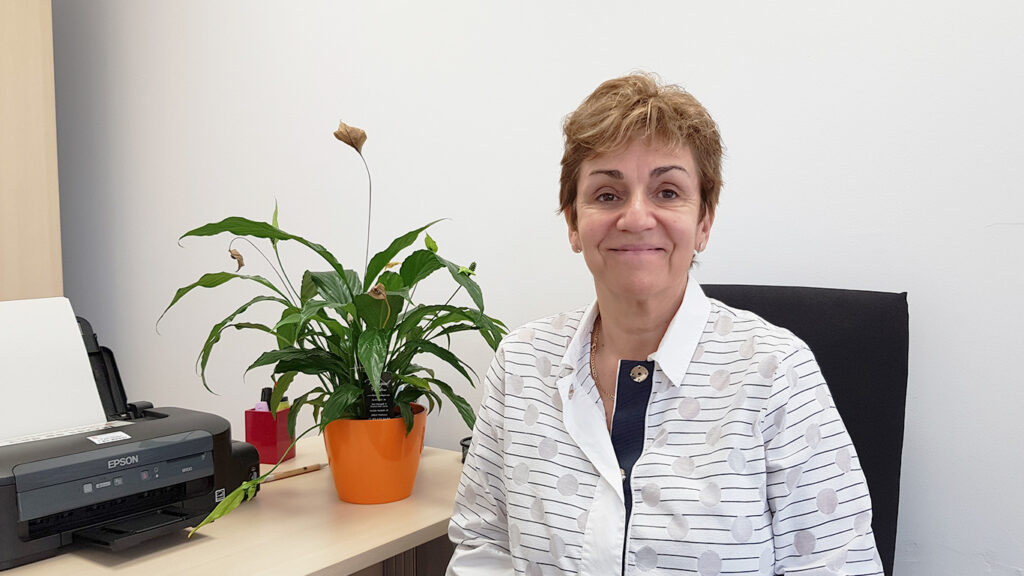Large B-cell lymphoma (acronym DLBCL) is one of the most common and aggressive types of lymphoma that occurs in adults and accounts for 30-40% of non-Hodgkin lymphoma cases. A phase III study, called ZUMA-7, shows that a new treatment with the drug Yescarta (axicabtagen ciloleucel, known as axicel) reduces the risk of death by 27.4%, which means a relative improvement of 38% in overall survival of patients with primary refractory or early relapsed large B-cell lymphoma.
This is the first treatment, after 30 years, that a study shows an improvement in overall survival compared to the standard treatment. The study, which has been led by the University of Texas MD Anderson Cancer Center (Houston) and published in the scientific journal “New England Journal of Medicine”, had the outstanding collaboration of the group leader of the Biomedical Research Institute of Bellvitge and head of the Clinical Hematology Service of the Catalan Institute of Oncology, Anna Sureda, and the results were presented at the American Society of Clinical Oncology (ASCO) congress held last weekend in the city of Chicago (USA).
What is Axicabtagen ciloleucel?
It is a drug that is used for the treatment of lymphoma after conventional therapy has not given the expected results. It is a treatment with CAR-T cells, a type of immunotherapy in which the patient’s cells are extracted, manipulated in the laboratory, and reinfused into the patient to fight the tumor cells.
This drug was approved by both the US Food and Drug Administration (FDA) and the European Medicines Agency (EMA) to treat patients with diffuse large B-cell lymphoma who failed two or more more previous lines of treatment. Subsequently, in October 2022, both institutions approved its administration as a second line of therapy in patients with this type of cancer that was primarily refractory or did not respond to initial treatment.
An increase in survival of almost 30%
Until today, patients with diffuse large B-cell lymphoma were treated with second-line chemotherapy, and those who achieved complete or partial remission were consolidated with high-dose chemotherapy followed by autologous transplantation (self-transplant). However, less than 40% of the patients reached the transplant phase, compared to 94% of the patients in the ZUMA-7 study who received treatment with axicel.
Now, after 4 years of follow-up of the patients included in Phase III ZUMA-7 study, it has been possible to observe a significant improvement in survival compared to the treatment used up to now, with a reduction in 27.4% of the risk of death, which corresponds to a 38% improvement in survival of this type of patients within the completion of treatment
For the IDBELL group leader, head of the ICO L’Hospitalet Clinical Hematology Service, and author of the study, Anna Sureda, “primarily refractory patients or those with early relapse (in the first 12 months) have a very poor prognosis after long-term and their survival with autologous transplant does not exceed 20%. These patients will benefit from the introduction of the new axi-cell treatment.” For Sureda, these results open a therapeutic alternative for patients with recurrent or early refractory DLBCL, since it has a higher percentage of survival compared to platinum-based chemotherapy treatment and subsequent autologous stem cell transplantation.
The Bellvitge Biomedical Research Institute (IDIBELL) is a biomedical research center created in 2004. It is participated by the Bellvitge University Hospital and the Viladecans Hospital of the Catalan Institute of Health, the Catalan Institute of Oncology, the University of Barcelona and the City Council of L’Hospitalet de Llobregat.
IDIBELL is a member of the Campus of International Excellence of the University of Barcelona HUBc and is part of the CERCA institution of the Generalitat de Catalunya. In 2009 it became one of the first five Spanish research centers accredited as a health research institute by the Carlos III Health Institute. In addition, it is part of the “HR Excellence in Research” program of the European Union and is a member of EATRIS and REGIC. Since 2018, IDIBELL has been an Accredited Center of the AECC Scientific Foundation (FCAECC).

